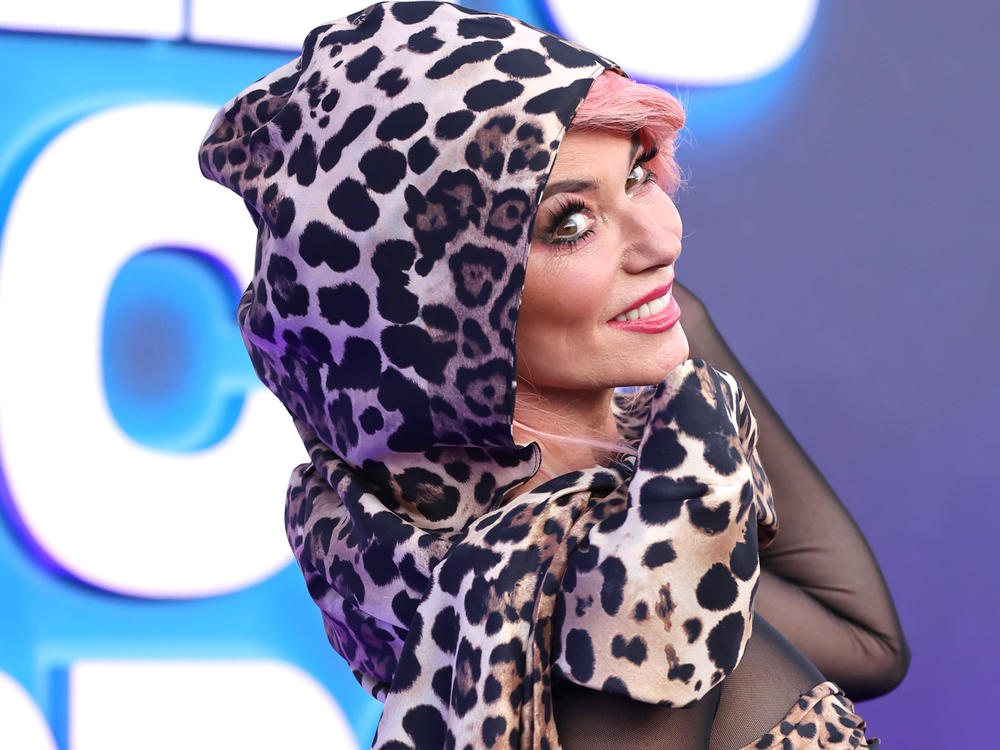Section Branding
Header Content
Shania Twain returns after a difficult pandemic with the beaming 'Queen of Me'
Primary Content
It's going to be a very busy year for Shania Twain. She's just released her first new album in five years, Queen of Me, along with all the media promotion a new record from her requires, and of course a world tour in support of it to prepare for – "I started designing the stage months ago," Twain says – and all of that on the heels of a severe turn of COVID pneumonia that had the pop-country superstar fearing that she may lose her voice completely.
Twain caught up with All Things Considered about those difficult recent times, her in-progress career resurgence and the ongoing fun of that surprise visit to Harry Styles' stage at Coachella last year.
The below has been edited and condensed. To hear the broadcast version of this conversation, use the audio player at the top of this page.
So this is your first album since 2017 – what were some of the ideas and experiences that found their way into it?
Because this album was written during COVID – as I always do, I [used] songwriting as my therapy. But with the forced isolation and everything, I just needed to pick myself up, cheer myself up. [I] started writing songs that made me feel like dancing and put me in a good mood.
Your experience with COVID wasn't a good one, right?
I got it quite severely, because I got the COVID pneumonia... so I ended up being [air evacuated] to an available bed and hospitalized there. Obviously I made it through, which is fabulous, but it took several tries of the treatment, plasma therapy, to get me through it.
When I got out of that hospital, the timing was amazing – I saw someone talking about air, the blessing of air ... and I just started writing this song about all the things we can do with air, other than the obvious. [Laughs]
There has been something of a resurgence recently for your 1997 hit "Man! I Feel Like a Woman" – you surprised Harry Styles fans onstage at Coachella last year to perform the song, which became a moment in and of itself. What's it been like to be introduced to a new generation this way?
It's really fantastic – it's re-energized me in so many ways. It inspires me to know that – or to watch, in person as it's happening, my music reuniting me with fans that are now in their 20s and 30s and were little kids in the audience all those years ago. They've grown into people like Harry Styles ... it's just fabulous.
Be honest, do you ever get sick of hearing that song?
No! Songs take on their own lives ... I sing them every night onstage and so on, but the audience is always different and the songs always mean something different to the audience than they do for me. That never gets old.
Do you feel in a way that you're having sort of a second wind?
I do feel that, especially because I had lost my singing voice for so long. I was worried that I'd never make more albums, never tour again. I would say I'm in a celebratory frame of mind, and I don't want to waste air [Laughs] and take anything for granted. COVID threw me into that awakening as well, I got so productive and wrote so many songs.
I think people who saw your documentary last year, or who have just followed your career, would know that it was not easy to get to this point. And then, as you say, almost losing your voice – how have you kept to it? How could others?
Hopefully it would mean something to those who are going through a difficult time – I mean there are a lot of people out there who have gone and are going through much more difficult times than I have. But the only advice I could give is just: Don't quit. I've felt, many times, like I just can't carry on ... It's not over 'till it's over, and you've got to keep that in mind. My self-help is songwriting ... find something that gives you the strength to take control of your frame of mind.
Copyright 2023 NPR. To see more, visit https://www.npr.org.

